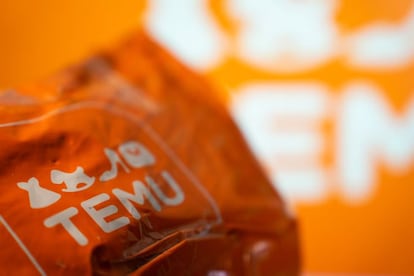Shein vs Temu: The battle of the fast fashion giants
The ongoing legal conflict between the Chinese e-commerce companies continues to intensify, with a new lawsuit accusing the PDD Holdings firm of trade secret theft


The battle between fast fashion giants Shein and Temu continues to escalate. On Monday, Shein accused Temu of organizing a “coordinated scheme” of intellectual property infringement. In a lawsuit filed in the U.S. District Court for the District of Columbia, the Chinese company claims its rival has engaged in a series of offenses ranging from trade secret theft and counterfeiting to trademark and copyright infringement. “Temu is losing an average of $30 on every U.S. order placed,” states the lawsuit, which argues that Temu attempts to “minimize these losses by selling infringing, counterfeit and substandard products.”
“Temu is no garden-variety infringer,” continues the lawsuit, which argues that Temu tries to mislead consumers with confusing ads on social media that make it difficult for users to distinguish between the two shopping platforms. It also claims that Temu has copied promotional photographs and designs of Shein’s most popular products. But the biggest accusation is that Temu hires social media influencers to discredit the company. The lawsuit argues that these influencers made “false and disparaging statements” about Shein, which have harmed the company.
“This relentless pursuit of low prices is central to its business model and competitive strategy, but its low prices are achieved by any means,” the lawsuit continues. Both firms’ catalogs offer everything from summer dresses for $8 to bracelets for less than $1.
In response to this newspaper’s questions about the lawsuit, Temu responded: “The audacity is inconceivable. Shein is buried under its own mountain of intellectual property infringement lawsuits, and has the nerve to fabricate accusations against others for the same offenses for which they are repeatedly sued.”
In November last year, Temu — which is operated by the Chinese e-commerce giant PDD Holdings, which controls local retailer Pinduoduo — announced it had filed a similar lawsuit, which claimed that fraudulent websites were impersonating the company, violating Temu’s intellectual property rights. The company further claimed that, with a valuation of over $15 billion, “it makes no sense for the company to circumvent the rules or take shortcuts.”
“Such actions are not beneficial to the long-term growth of either the new business or the parent company. Nor do they make economic sense in the short term,” Temu told this newspaper last year.
Shein’s representatives did not immediately respond to this newspaper’s queries.
This is just the latest attack in the ongoing legal dispute between the two low-cost e-commerce platforms. In July last year, Temu accused Shein of pressuring manufacturers to cut ties with its rival, and Shein claimed that Temu instructed influencers to make “false and misleading statements” about Shein in promotional material. Both lawsuits were dropped in October.
Then, in December, Temu sued Shein again, alleging that its rival had gone so far as to falsely imprison vendors who did business with them.
The legal showdown comes amid increased competition between the two firms, especially in the United States. Shein has been operating in the United States since 2017, and it wasn’t until 2022 that it began to face pressure from Temu, which uses the same strategy of rock-bottom prices and eye-catching designs. In December, in a court filing, Temu claimed that Shein’s valuation fell by $30 billion following increased competition in the U.S.
Shein is also navigating the challenges of a more complicated initial public offering (IPO) than originally anticipated. For months, the company has been seeking to make the leap to the London Stock Exchange as one of the largest public offerings in the history of the U.K. stock market — a move that could potentially value the company at $66 billion. Shein also has plans for a U.S. IPO, but has not yet been able to overcome the regulatory hurdles. The company has even had to think of a Plan C if it is unable to float on the London Stock Exchange: a listing in Hong Kong, a shift analysts say could hurt investor interest.
Sign up for our weekly newsletter to get more English-language news coverage from EL PAÍS USA Edition
Tu suscripción se está usando en otro dispositivo
¿Quieres añadir otro usuario a tu suscripción?
Si continúas leyendo en este dispositivo, no se podrá leer en el otro.
FlechaTu suscripción se está usando en otro dispositivo y solo puedes acceder a EL PAÍS desde un dispositivo a la vez.
Si quieres compartir tu cuenta, cambia tu suscripción a la modalidad Premium, así podrás añadir otro usuario. Cada uno accederá con su propia cuenta de email, lo que os permitirá personalizar vuestra experiencia en EL PAÍS.
¿Tienes una suscripción de empresa? Accede aquí para contratar más cuentas.
En el caso de no saber quién está usando tu cuenta, te recomendamos cambiar tu contraseña aquí.
Si decides continuar compartiendo tu cuenta, este mensaje se mostrará en tu dispositivo y en el de la otra persona que está usando tu cuenta de forma indefinida, afectando a tu experiencia de lectura. Puedes consultar aquí los términos y condiciones de la suscripción digital.








































